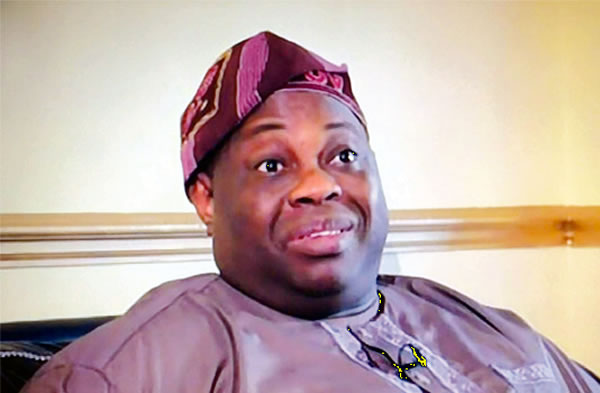Dele Momodu, a seasoned journalist and former presidential aspirant, has formally severed ties with the Peoples Democratic Party (PDP). His resignation, effective immediately, was communicated through a letter dated July 17, 2025, addressed to the PDP Ward 4 Chairman in Ihievbe, Owan East Local Government Area, Edo State. Momodu’s departure underscores a growing wave of discontent within the PDP, stemming from allegations of stifled internal democracy and imposed candidacies. He explicitly cited the party’s alleged “hijacking” by “anti-democratic forces,” both internal and external, as the primary reason for his exit.
Momodu’s letter paints a stark picture of a party he believes has been fundamentally compromised. He uses strong language, referring to the PDP as a “carcass” left to those he accuses of undermining democratic processes. This imagery suggests a sense of disillusionment and a belief that the party’s core values and principles have been irrevocably damaged. His decision to leave, he argues, is driven by a commitment to uphold democratic ideals, implying that remaining within the PDP would be a compromise of these principles.
The former presidential aspirant further reveals his intention to join the African Democratic Congress (ADC), presenting it as a viable alternative to the PDP. This move signals a search for a political platform more aligned with his democratic values. It also suggests a belief in the ADC’s potential to offer a more inclusive and participatory political environment, contrasting with what he perceives as the PDP’s current state. His decision to join the ADC adds to the growing narrative of political realignment and the search for alternative platforms by politicians dissatisfied with the existing political landscape.
Momodu’s resignation comes on the heels of his unsuccessful bid for the PDP presidential ticket in the 2023 general elections. While he doesn’t explicitly link his resignation to the outcome of the primaries, it’s plausible that his experience within the party during that period contributed to his current disillusionment. His allegations of anti-democratic practices within the PDP might reflect his personal observations and experiences during the primaries, adding weight to the broader claims of internal power struggles and manipulation within the party.
The wave of defections from the PDP, of which Momodu’s resignation is the latest example, highlights deeper issues within the party. Recurring complaints about the imposition of candidates and a lack of internal democracy suggest a systemic problem that has alienated a segment of its membership. These departures signify not just individual dissatisfaction but a potentially damaging trend that could weaken the party’s political standing and influence. The PDP’s ability to address these concerns and regain the trust of its members will be crucial for its future viability.
Momodu’s resignation, coupled with the ongoing exodus of members, presents a significant challenge for the PDP. The party’s leadership will need to introspect and implement meaningful reforms to address the root causes of this discontent. Failure to do so could lead to further erosion of its support base and diminish its prospects in future elections. The situation also underscores the broader dynamics of Nigerian politics, where the search for viable political platforms and internal party democracy remains a continuous struggle. The defections signal a potential shift in the political landscape and the possibility of realignment among political forces in the lead-up to future elections.














